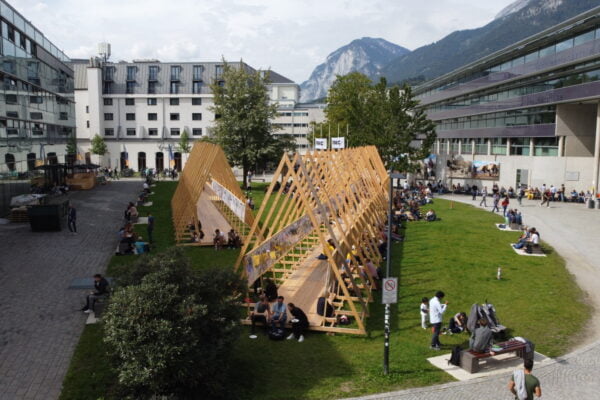
NAME:
SOWI - Garden
BUILDING:
SOWI
FLOOR:
0
TYPE:
Garden
CAPACITY:
2000
ACCESS:
Public Access
EQUIPMENT:
---
Himalayan cryospheric waters are a vital freshwater source for billions of people living in upstream and downstream regions, thereby playing a crucial role in sustaining the economic stability of the region. However, these critical water resources face significant threats from climate change, potentially disrupting the region’s economic stability. In this study, we used stable water isotopes (δ¹⁸O and δ²H) to investigate the isotopic evolution of cryospheric water and identify the primary sources of streamflow in snow and glacier dominated high-altitude catchments within the Indus River Basin. Newly deposited snow displayed a notable altitude effect, while surface snow exhibited a reverse altitude effect due to evaporation and sublimation processes. Post-depositional changes in snow led to significant isotopic homogenization of δ¹⁸O and δ²H, with isotopic exchange between firn and percolating meltwater resulting in greater enrichment of heavy isotopes in successive snow layers. Bayesian stable isotope mixing model in R indicated that snowmelt contributed significantly to streamflow in the Indus (63±1.2%) and Shyok (58±1.7%) catchments, while glacier melt dominated contributions in the Nubra (64±2.3%) and Suru (60±2.7%) catchments. Groundwater (baseflow) was found to play a critical role in sustaining river and stream flows during winter and spring, ensuring local water availability. The higher slope and intercept of the snow and glacier melt lines compared to global and local meteoric water lines indicated minimal evaporation. The findings suggest that the region’s spatially diverse, rugged topography and microclimates largely dictate the varying contributions of different sources to river flow. With a warming climate causing decreased solid precipitation, continuous glacier mass loss, and earlier snowmelt, the perennial flow of rivers is likely to be inconsistent, posing significant risks to the region’s economic and political stability.

We and use cookies and other tracking technologies to improve your experience on our website. We may store and/or access information on a device and process personal data, such as your IP address and browsing data, for personalised advertising and content, advertising and content measurement, audience research and services development. Additionally, we may utilize precise geolocation data and identification through device scanning.
Please note that your consent will be valid across all our subdomains. You can change or withdraw your consent at any time by clicking the “Consent Preferences” button at the bottom of your screen. We respect your choices and are committed to providing you with a transparent and secure browsing experience.